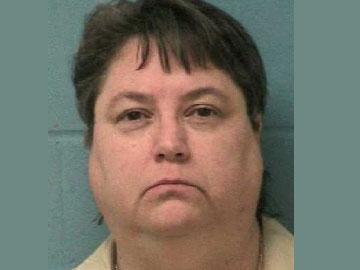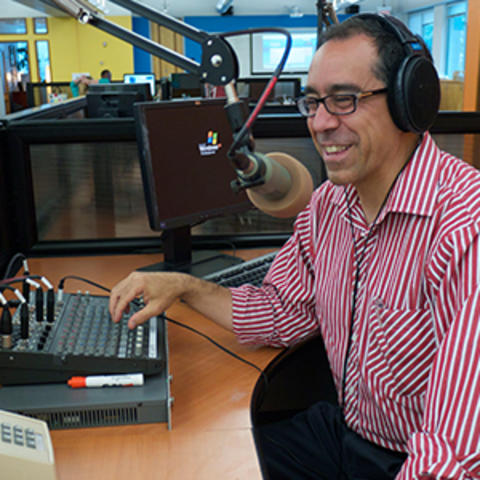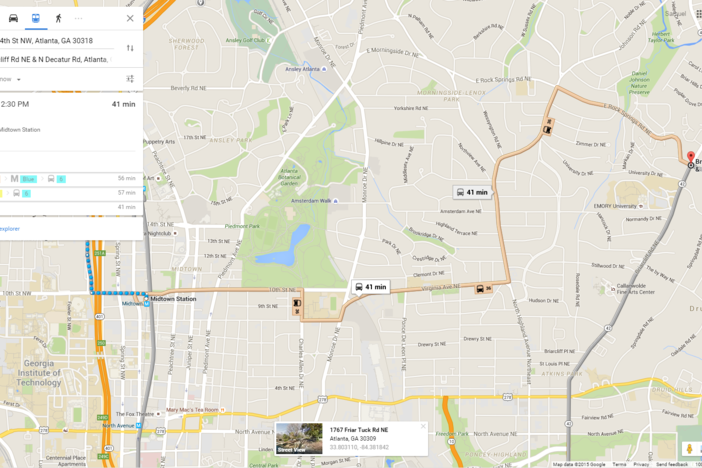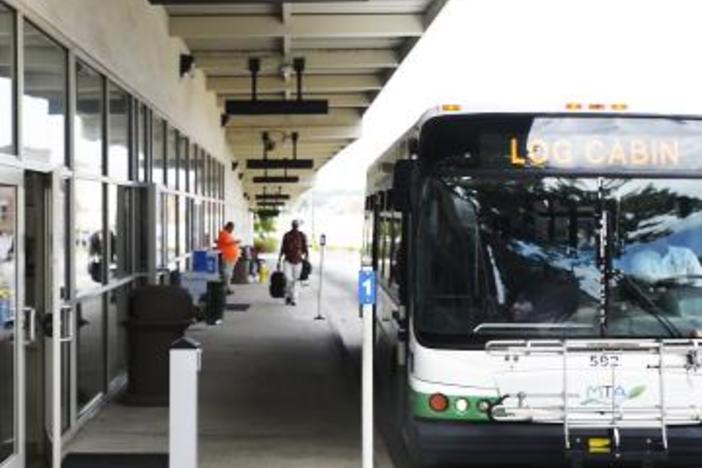
Section Branding
Header Content
Behind The Plea For Death Penalty Clemency For Kelly Gissendaner
Primary Content

Update: Due to the inclement weather, Kelly Gissendaner's execution has been postponed and rescheduled for March 2 at 7 p.m.
A jury sentenced the 46-year-old Gissendaner to death for planning the murder of her husband, Doug, in 1997. The boyfriend who actually killed the husband, Gregory Owen, avoided the death penalty by providing evidence to convict Gissendaner.
As is typically the case, Gissendaner appealed to the Board of Pardons and Paroles for clemency and eventual commutation of the death penalty sentence.
And this morning, the board issued a release as it usually does saying that they decided against that clemency. That statement gives the typical language that the board "reviewed all information and documents" that were part of the application and reviewed testimony.
What's unusual, however, is that the board decided to release Gissendaner's full application to avoid the execution.
This rare release of a document lays out her arguments for clemency.

It's full of testimonials for a woman who has embraced her religious faith and become a help to fellow inmates at prisons in the state system.
One example comes from her former warden at Metro State Prison, Vanessa O'Donnell:
“I understand the severity of her conviction, nevertheless, it seems appropriate, in this case, that her 17 years of isolation warrants a commutation permitting her to spend the remainder of her life serving as an example to fellow inmates. She can provide hope to the most desperate female offender in a manner no one else could possibly understand.”
And yet, you can't forget the crime.
But then you read further and find that Gissendaner tried to mend fences with her three children. Brandon, Kayla and Dakota were 12, 7 and 5 years old respectively when their father was murdered. Kelly Gissendaner states:
"I know that I have caused them unbearable and irreversible pain." (pg. 44)
And then you read the testimony of this children.
Kayla talks about reconnecting with her mother:
”It was by no means an easy road, but I learned that forgiving my mother was the best way to truly honor my father's memory and who he was.” (pg. 46)
Dakota gives this testimony:
”I can't believe it took me so long to realize that she is really my mom and I love her with all my heart no matter the situation. “(pg. 46)
These kids forgave their mother. And yet, you have to remind yourself of the murder committed.
Grant Blankenship wondered why the Board of Pardons and Paroles decided to release the document and pushed board spokesman, Steve Hayes, for an answer.
In a written statement Hayes told him the board wants the public to understand its decision-making better .
In an email he said: “The Board recognizes that the process is not understood that well. The Board is finding ways to improve the process.”
The application gives a real window into a process that had previously been opaque.
Meanwhile, Gissendaner's execution will be the first time in 70 years a woman has been put to death in Georgia.
Secondary Content
Bottom Content





